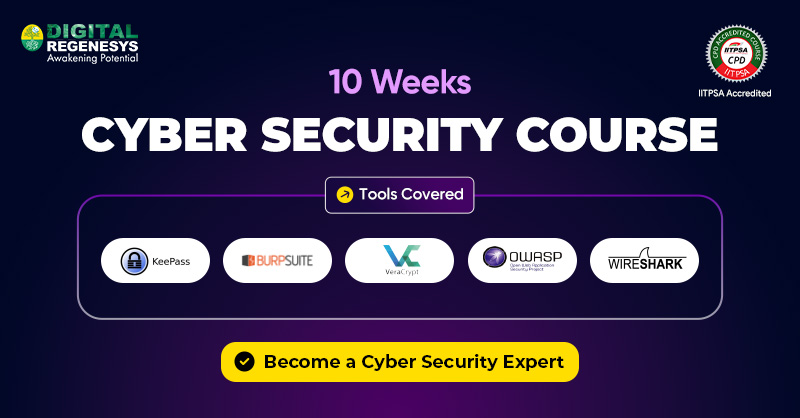What to Expect from a Cybersecurity Analyst Salary in Croatia

The demand for cybersecurity professionals continues to rise across Europe, and Croatia is no exception. As more businesses and government agencies digitise their operations, the need for robust cyber defences becomes a top priority. In this context, the Cybersecurity Analyst Salary in Croatia is a key consideration for professionals aiming to build a career in this fast-evolving domain. From entry-level positions to senior leadership roles, cybersecurity professionals play a crucial role in protecting sensitive data and systems.
Understanding the salary helps job seekers make informed career choices. It also enables them to identify the factors that influence compensation, such as experience, certifications, skill sets, and location. Whether someone is new to cybersecurity or aiming to advance to a higher role, this guide provides valuable insights.
The article examines salary trends for junior, mid-level, and senior professionals, as well as the skills and locations that drive higher earnings. For anyone aiming to increase their Cybersecurity Analyst Salary in Croatia, strategic upskilling and experience-building are essential.
Why Cybersecurity Analysts Are in High Demand in Croatia
With the increasing digital transformation in both the public and private sectors, Croatia is witnessing a rise in cyber threats and data breaches. As a result, companies are ramping up their investments in cybersecurity infrastructure. This growth is fueling demand for trained professionals who can detect vulnerabilities, monitor network activity, and respond to security incidents.
Cybersecurity analysts are becoming increasingly essential in industries such as banking, healthcare, telecommunications, and government. The growing emphasis on data privacy and compliance with regulations, such as GDPR, further elevates the importance of these professionals. The strong demand directly impacts the Cybersecurity Analyst Salary in Croatia, making it an attractive field for both newcomers and experienced professionals.
Here’s a closer look at what drives the high demand for cybersecurity analysts in Croatia:
- Increased cyber threats: Rising incidents of phishing, malware attacks, and ransomware make cybersecurity a top priority.
- Regulatory compliance: Adhering to standards like GDPR requires dedicated analysts to maintain data security.
- Digital expansion: As more services move online, businesses require experts to monitor and protect their IT infrastructure.
- Talent shortage: The gap between demand and the availability of skilled professionals increases the Cybersecurity Analyst Salary in Croatia.
Also read – Best Online Cyber Security Course in Croatia

Cybersecurity Analyst Salary in Croatia (2025 Overview)
The Cybersecurity Analyst Salary in Croatia varies based on experience, job titles, and responsibilities. As professionals gain expertise, their roles expand, and so does their earning potential. From monitoring security systems to leading entire cybersecurity strategies, each level brings new challenges and rewards.
The progression of a cybersecurity career also determines long-term earning opportunities. While entry-level roles focus on basic threat detection, mid and senior-level analysts engage in threat hunting, incident response, and strategic defence planning. This tiered growth is a significant factor in the overall Cybersecurity Analyst Salary in Croatia.
Entry-Level Cyber Analyst
At the entry level, professionals are often assigned operational tasks such as monitoring systems and generating reports. These roles serve as the foundation for developing cybersecurity expertise.
- Junior Cyber Analyst: Handles basic incident detection, maintains logs, and assists in compliance monitoring.
- Security Operations Analyst: Works in Security Operations Centres (SOCs), monitoring real-time network activity and flagging anomalies.
- SOC Analyst: Investigates alerts, creates threat summaries, and escalates potential incidents to senior staff.
Mid-Level Security Analyst
Mid-level professionals usually have 3–5 years of experience and play a key role in active threat mitigation.
- Cybersecurity Consultant: Advises companies on risk management, security architecture, and threat intelligence.
- Incident Response Analyst: Manages and investigates security breaches to ensure rapid remediation and minimal downtime.
- Vulnerability Analyst: Scans systems for vulnerabilities and works with teams to implement fixes.
Senior Cyber Security Analyst
Senior analysts lead teams, develop policies, and oversee complex security projects. Their role has a significant impact on the Cybersecurity Analyst Salary in Croatia.
- Lead Security Analyst: Directs team efforts, sets strategic goals, and manages large-scale cybersecurity initiatives.
- Cybersecurity Manager: Supervises entire security operations, manages budgets, and evaluates risk exposure.
- Security Architect: Designs secure systems and infrastructure tailored to organisational needs.
You may also like to read about – How to Prevent Cyber Attacks on Businesses?
Entry-Level Cyber Security Analyst Salary in Croatia
For those just entering the field, the Cybersecurity Analyst Salary in Croatia reflects their growing responsibilities and the basic knowledge base required. While they may not lead major security initiatives, their contributions are vital for day-to-day operations.
Typical job titles include Junior Cyber Analyst, Security Operations Analyst, and SOC Analyst. These roles provide a platform for learning and growing into higher positions. Employers seek professionals with a foundational understanding and practical skills.
Here’s what defines an entry-level cybersecurity role in Croatia:
- Job titles: Junior Cyber Analyst, Security Operations Analyst, SOC Analyst, IT Security Support
- Key skills required:
- Understanding of firewalls, antivirus, and endpoint protection tools
- Familiarity with network protocols and common attack vectors
- Basic proficiency in SIEM tools like Splunk or IBM QRadar
- Qualifications:
- A background in IT, engineering, or related fields
- Completion of cybersecurity certifications can improve job prospects
Read more – What is Website Security?
Cybersecurity Analyst Certification Salary Impact
Certifications play a critical role in shaping the Cybersecurity Analyst Salary in Croatia. Professionals who hold relevant credentials are often offered better positions and more responsibility, which translates into higher compensation. Certifications validate practical knowledge and technical competence.
Here’s how certifications impact careers:
- Better roles and responsibilities: Certified professionals are often considered for lead or specialist roles sooner.
- Enhanced credibility: Employers often view certified candidates as more committed, knowledgeable, and prepared to handle complex security responsibilities. This can positively impact hiring decisions and open doors to more advanced roles.
- Career progression: They enable faster movement from junior to mid-level roles, accelerating salary growth.
- Employer preference: Many companies prioritise certified analysts during hiring and promotions.
- Skill validation: Certifications demonstrate expertise in areas such as threat analysis, risk management, and incident response.
Also, read more about – How to Detect Cyber Threats?
Cyber Security Analyst Pay by Location in Croatia
Location is another factor that significantly influences the Cybersecurity Analyst Salary in Croatia. Different cities offer varying compensation based on the cost of living, industry presence, and demand for cyber professionals. Zagreb, being a tech hub, offers the most competitive packages.
Each city also presents different work environments, ranging from multinational firms to local startups. Analysts must consider job responsibilities, growth opportunities, and work-life balance in each location they are considering.
Here’s a city-wise look at how salaries can vary:
- Zagreb: The highest demand for cyber talent; most large organisations are headquartered here.
- Split: Growing IT and tourism sectors contribute to an increase in cyber roles.
- Rijeka: Rising number of companies investing in tech, resulting in a steady demand for analysts.
- Osijek: Smaller market, but opportunities exist in emerging startups and the public sector.
You may also like to read – What is a Cyber Attack?
Most In-Demand Skills for Cyber Security Analysts in Croatia
Possessing the right technical skills can dramatically impact the Cybersecurity Analyst Salary in Croatia. Employers are seeking professionals with a well-rounded combination of analytical thinking, hands-on technical expertise, and familiarity with compliance standards. These skills determine how well an analyst can detect, prevent, and respond to threats.
Professionals who continue to upskill in these areas often find themselves moving quickly up the salary ladder. Here are the most in-demand skills in the Croatian cybersecurity market:
- SIEM tools: Proficiency in tools such as Splunk and IBM QRadar is essential for effective threat monitoring.
- Firewalls & IDS/IPS: Deep understanding of firewall configurations and intrusion detection systems.
- Penetration testing: Ability to conduct vulnerability scans and ethical hacking for proactive defence.
- Threat intelligence: Experience in monitoring global threat landscapes and applying insights locally.
- Compliance: Familiarity with GDPR, ISO 27001, and similar frameworks improves employability.
Also read about – What is the Purpose of Cyber Security and Why It Matters?
How to Increase Your Cyber Security Analyst Salary in Croatia
Those looking to improve their Cybersecurity Analyst Salary in Croatia must adopt a strategic approach. Whether it’s by earning new certifications or taking on more responsibilities, professionals have several ways to boost their earning potential.
These strategies also help in long-term career growth, enabling smoother transitions to more senior roles. Here’s what can help:
- Earn high-demand certifications: Earning widely recognised cybersecurity certifications significantly boosts a professional’s credibility.
- Gain hands-on experience by using platforms like TryHackMe or Hack The Box to build technical proficiency.
- Stay updated: Follow industry trends, threat reports, and emerging technologies to stay ahead.
- Target international firms: Multinational companies often offer more competitive compensation and flexible remote work options.
- Freelance opportunities: Working with EU-based clients can provide higher payouts and project diversity.
Read similar blogs – Aims and Objectives of Cyber Security
Conclusion
The role of a cybersecurity analyst in Croatia is more vital than ever. With rising threats and rapid digitalisation, skilled professionals are in high demand across sectors. Understanding the Cybersecurity Analyst Salary in Croatia provides clarity on how different roles, cities, and skills can influence career progression.
Professionals looking to fast-track their careers can benefit from structured upskilling. Digital Regenesys offer an industry-aligned cybersecurity certificate course designed to build technical competence and confidence. With hands-on projects and a strong emphasis on real-world application, it provides a comprehensive learning path for aspiring cybersecurity analysts.
From entry-level to senior-level positions, opportunities are abundant for those who are proactive and skilled. Those who combine technical expertise with continuous learning are best positioned to succeed.
Explore Digital Regenesys’s Cybersecurity certificate course today and build a resilient career in Croatia’s digital economy.
Last Updated: 25 September 2025
